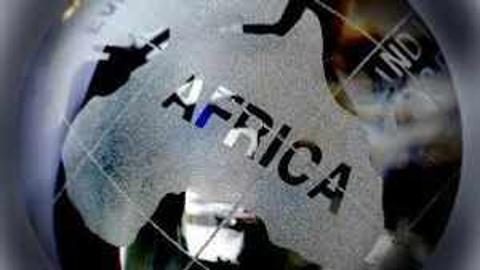Africa-Press – South-Africa. * Trade under AfCFTA bloc begins Jan. 1
* Launch delayed six months due to pandemic
* Implementation of free trade deal to take years
By Joe Bavier
JOHANNESBURG, Jan 1 (Reuters) – African countries began
officially trading under a new continent-wide free trade area on
Friday, after months of delays caused by the global coronavirus
pandemic.
But experts view the New Year’s Day launch as largely
symbolic with full implementation of the deal expected to take
years.
The African Continental Free Trade Area (AfCFTA) aims to
bring together 1.3 billion people in a $3.4 trillion economic
bloc that will be the largest free trade area since the
establishment of the World Trade Organization.
Backers say it will boost trade among African neighbours
while allowing the continent to develop its own value chains.
The World Bank estimates it could lift tens of millions out of
poverty by 2035.
But obstacles – ranging from ubiquitous red tape and poor
infrastructure to the entrenched protectionism of some of its
members – must be overcome if the bloc is to reach its full
potential.
Trade under the AfCFTA was meant to be launched on July 1
but was pushed back after COVID-19 made in-person negotiations
impossible.
However, the pandemic also gave the process added impetus,
said Silver Ojakol, chief of staff at the AfCFTA’s secretariat.
“We saw the impact on our economies of the disruption of
imports due to the pandemic,” he said. “So there’s actually been
an increase in political will to boost intra-African
integration.”
Every African country except Eritrea has signed on to the
AfCFTA framework agreement, and 34 have ratified it. But
observers such as W. Gyude Moore – a former Liberian minister
who is now a senior fellow at the Center for Global Development
– say the real work begins now.
“I would be surprised if they can have everything set up
within 24 months,” he told Reuters. “For long-term success, I
think we’ll need to look at how long it took Europe. This is a
multi-decade process.”
‘WE MUST START SOMEWHERE’
Historic challenges including Africa’s poor road and rail
links, political unrest, excessive border bureaucracy and petty
corruption will not disappear overnight.
And an annex to the deal outlining the rules of origin – an
essential step for determining which products can be subject to
tariffs and duties – has not been completed yet.
Meanwhile, 41 of the zone’s 54 member states have submitted
tariff reduction schedules.
Members must phase out 90% of tariff lines – over five years
for more advanced economies or 10 years for less developed
nations. Another 7% considered sensitive will get more time,
while 3% will be allowed to be placed on an exclusion list.
Finalising those schedules and communicating them to
businesses must be done quickly, said Ziad Hamoui of Borderless
Alliance, a group that campaigns for easier cross-border trade.
But efforts to implement the deal will also likely face
resistance from countries’ domestic interest groups. Fears of
losing out to more competitive neighbours initially made some
countries, including West African giant Nigeria, sceptical of
the pan-African project.
Still, proponents of the zone are confident that initial
steps towards its implementation will already allow member
states to double intra-African trade by 2025.
“Economic integration is not an event. It’s a process,”
said the AfCFTA secretariat’s Ojakol. “We must start somewhere.”
(Editing by Alex Richardson)






